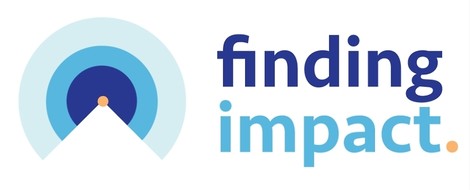Your podcast discovery platform
Curious minds select the most fascinating podcasts from around the world. Discover hand-piqd audio recommendations on your favorite topics.

piqer for: Boom and bust Deep Dives Doing Good Climate and Environment Technology and society Global finds
Chhavi Sachdev runs Sonologue and is India's second most experienced podcaster, having started putting out podcasts on her own and for clients like the Blue Frog in 2008... long before Serial, leading her mother to tell other people "I don't know what she does. Something to do with radio on the Web."
Over the last 10 years, she has developed and launched several podcasts that are successfully running, as well as produced the LSDcast - India's definitive podcast about love, sex, and dating, and Tall Tales Takeaway -- bite size true stories, told live.
She also conducts workshops on DIY podcasting, audio editing, and consults for organizations that need a little handholding in the audio format.
To pay the bills, Chhavi is a freelance multimedia journalist and producer covering science, health, development, sustainability, and women's issues extensively. She has co-hosted episodes for BBC's World Hacks and CrowdScience and she's a frequent presenter on PRI's The World, BBC's Health Check and several Deutsche Welle programs.
She listens to podcasts while exercising, doing chores, and also when she's felled by migraines.
Understanding Behavioural Design (in a practical way)
We know what behavioural science is, more or less. It's the study of why human beings act a certain way in a certain circumstance. In the Finding Impact podcast, host Andy Narrcott talks to Alexandra Fiorillo about what behavioural design is, especially in the context of social impact and entrepreneurship.
[Fiorillo] explains how behavioral science is the study of action-taking and is often very focused on a single moment in time or decision while human-centered design is an empathy-based collaborative process which is used as a problem-solving tool. When these two are combined together, you have a discipline that addresses both how humans actually behave and as well as what their aspirations are.
Fiorillo basically says that while you can design a tool or experience or solution to something that is just perfect, often times, frustratingly, it isn't adopted. The reasons could be varied, she explains. Sometimes it's just inertia, the status quo is simply easier; some times there are cultural or social barriers to adoption. This is where behavioural design comes in -- it helps developers, leaders, sociologists understand WHY people aren't embracing the new, innovative, perfect option and then leverage it to design the tools accordingly.
The applications are endless and fascinating as well as multidisciplinary and global. So whether you're trying to get more people to use your app to report a social problem or you're trying to build toilets that third-world communities will actually use, behavioural design is crucial. I liked this episode for its real world examples of where you can see this (organ donation, anyone?) and the really articulate way in which both the guest and host talk about this field of which I knew nothing about before. If you strive to learn something new, this is a good one to tickle your brain.
